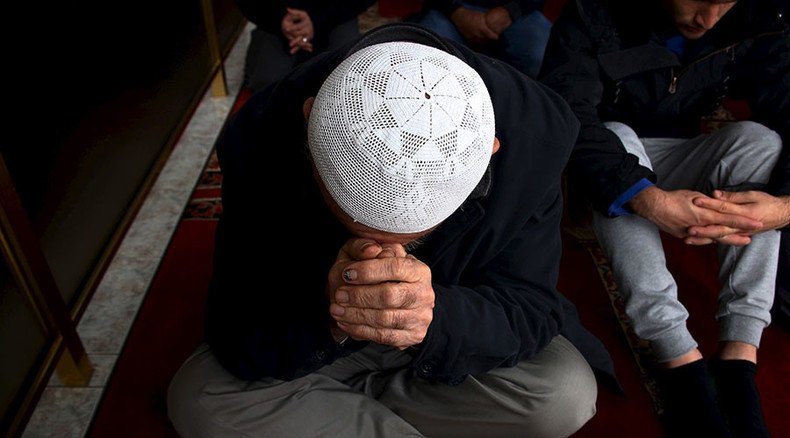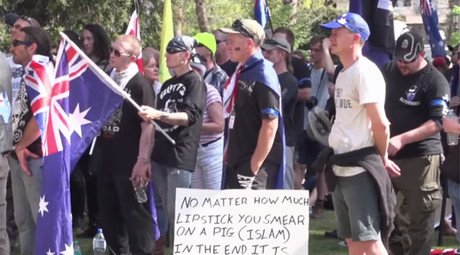Spike in attacks on Muslim Australians, legal protection 'incomplete and vulnerable' – report

Muslim communities in Australia have experienced a dramatic spike in attacks, a new report has found. Increased anti-terror measures after last year’s 16-hour Lindt cafe siege in Sydney have prompted many to feel a sense of “us versus them,” it says.
Many complained of being inadequately protected by the Racial Discrimination Act, which makes it unlawful to treat a person unfairly because of their race, color, descent, national or ethnic origin or immigrant status. Since 1995, the Act has also made it unlawful to express racial hatred, commonly referred to as “racial vilification.”
“Representatives of Muslim and Arab organizations also reported that members of their communities experienced racial and religious vilification with regular frequency, not only in verbal form, but also through offensive letters and pamphlets,” the report by the Human Rights Commission said. “Much of this is linked to the issue of terrorism and national security.”
READ MORE: Sydney gunman identified as Iranian-born Man Haron Monis, on bail for violent crimes
That sentiment allegedly intensified after the siege in Sydney’s Martin Place in December 2014, in which two captives and the gunman, an Iranian refugee, were killed.
One participant in the research, of Muslim background, reflected: “I came to Australia two years ago... after what happened in Martin Place, I get asked, ‘Are you a terrorist?’”
Various other participants confirmed that Muslim women, particularly those who wear the hijab, felt fearful of being abused on public transportation.
A number of community and religious leaders have questioned the relevance of the Act in protecting Muslim Australians, since religion is not covered by the legislation.
“There was some scepticism about the relevance of the Act, however, in protecting Muslim Australians,” the report, which took into account testimony from consultations with community groups in the first half of the year, said.
“One participant in Melbourne, for example, said that racial discrimination legislation was ineffective in protecting against anti-Muslim abuse because perpetrators would simply claim, ‘I’m not a racist; Islam is not a race.’”
According to Tim Soutphommasane, the race discrimination commissioner, the ability of the Act to protect Muslim Australians against discrimination or vilification is limited. “Complaints about racial discrimination made by Muslim Australians will not be accepted by the Commission unless there is some racial or ethnic element to the complaint,” he said in the report.
Since the Act was introduced, over 6,000 complaints about racial discrimination have been successfully conciliated. During the year 2014/15, the Commission finalized 405 complaints under the Act, of which only 12 proceeded to court, according to the report.
There have been no cases which identify Muslims as an “ethnic group” for the purposes of the Act.
“Existing legislative protections against racial discrimination are incomplete and vulnerable,” the commissioner said.
READ MORE: Australia's sense of 'losing whiteness' projected onto Muslims
Last year, then-Prime Minister Tony Abbott withdrew plans to change section 18C of the Racial Discrimination Act to remove the offense of offending, insulting or humiliating people on the basis of race.
“I don’t want to do anything that puts our national unity at risk at this time, so those proposals are now off the table,” Abbott said at the time.
The report has meanwhile revealed a “lack of awareness about the Act and its operation among some sections of the Australian community, particularly newly arrived migrants and young people.”
“This may explain to some extent why there may be an under-reporting of racism, with many people declining to lodge complaints when they experience racial discrimination or vilification,” it added.













